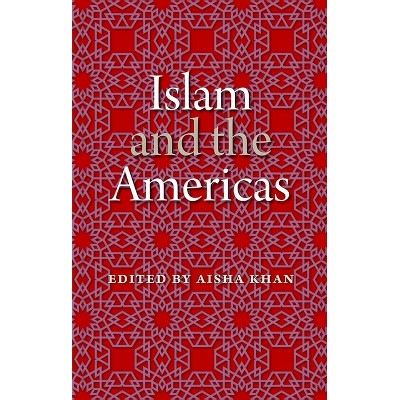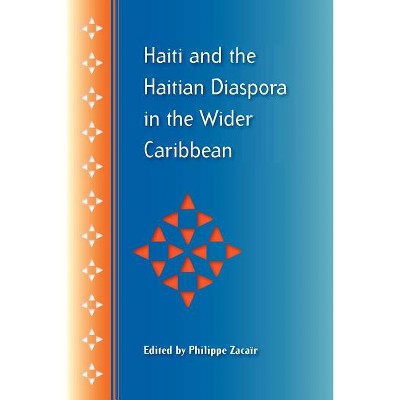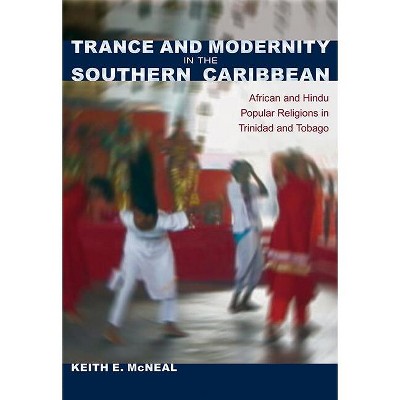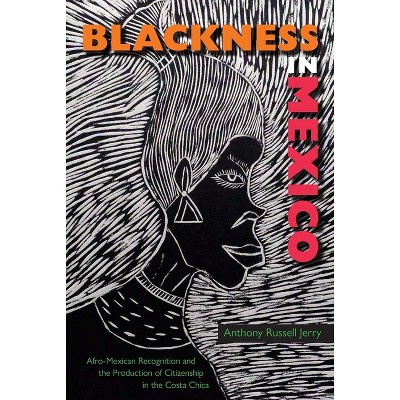Sponsored

Kosher Feijoada and Other Paradoxes of Jewish Life in São Paulo - (New World Diasporas) by Misha Klein (Paperback)
In Stock
Sponsored
About this item
Highlights
- Being Jewish in Brazil--the world's largest Catholic country--is fraught with paradoxes, and living in São Paulo only amplifies these vivid contradictions.
- About the Author: Misha Klein is associate professor of anthropology at the University of Oklahoma.
- 270 Pages
- Social Science, Anthropology
- Series Name: New World Diasporas
Description
Book Synopsis
Being Jewish in Brazil--the world's largest Catholic country--is fraught with paradoxes, and living in São Paulo only amplifies these vivid contradictions. The metropolis is home to Jews from over 60 countries of origin, and to the Hebraica, the world's largest Jewish athletic and social club.
Jewish identity is rooted in layered experiences of historical and contemporary dispersal and border crossings. Brazil is famously tolerant of difference but less understanding of longings for elsewhere. Celebrating both Carnival and the High Holidays is but one example of how Jews in São Paulo hold themselves together as a community in the face of the forces of assimilation.
From the Back Cover
The special strength of this book, aside from its lyrical writing, is that the author effortlessly blends the meaning of being Jewish in Brazil with that country s much noted racial and cultural tolerance and shows how Jewish identity is impacted by Brazilian concepts of race and ethnicity. It is a delight to read. Maxine Margolis, University of Florida A fascinating ethnography of contemporary life among middle- and upper-middle class Jews in Sao Paulo, Brazil, one of the world s largest cities. Although representing a tiny fraction of Brazil s multicultural population, the Jewish community consciously creates and carefully maintains a tightly organized, lively haven in a chaotic urban center, while also embracing much of Brazil s national culture. Robin Sheriff, University of New HampshireBeing Jewish in Brazil the world s largest Catholic country is fraught with paradoxes, and living in Sao Paulo only amplifies these vivid contradictions. The metropolis is home to Jews from over 60 countries of origin, and to the Hebraica, the world s largest Jewish athletic and social club. Jewish identity, like any diasporic identity, is rooted in layered experiences of historical and contemporary dispersal and border crossings. When Jews arrived in Brazil from so many points on the globe, they brought with them significant cultural differences. Building on their common identity as Jews, these immigrants and their descendants created community in their new country through mostly secular organizations. Drawing on national ideologies of inclusion, these communal organizations have facilitated the Brazilification of the Jewish community through the use of Portuguese and the incorporation of Brazilian practices, including holidays, into the Jewish repertoire. Misha Klein s fascinating ethnography reveals the complex intertwining of Jewish and Brazilian life and identity.Misha Klein is assistant professor of anthropology at the University of Oklahoma.A volume in the series New World Diasporas, edited by Kevin A. Yelvington"Review Quotes
"Klein's personal accounts are very entertaining and informative, as she has a sharp and ethnographic eye and writes with an easy sense of humor about all of the difficulties and concessions of being Jewish in São Paulo. . . . Klein underscores quite rightly that one of the most outstanding characteristics of Brazilian Jews is their Brazilianness."--Chasqui
"Shines a light on one of São Paulo's large and important minority communities, and it does so with grace and respect. Klein treats her human subjects with sensitivity."--Ethnohistory
"Kosher Feijoada--which touches, among very many other topics, on the ways Jewish Brazilians have incorporated and adapted elements of Brazilian food--is a welcome addition to the historiography."--Latin American Research Review
"A universal proof of how ethnic and national identities may be intrinsically linked."--Ethnic and Racial Studies
"An important starting point for a new sensitivity to identities that may reorganize the field of Jewish studies in Brazil with new questions, new themes, new sources, and new problems."--H-Net
"Treat[s] the themes here included with anthropological rigor and balanced humor . . . a stimulating study."--Shofar
About the Author
Misha Klein is associate professor of anthropology at the University of Oklahoma.











